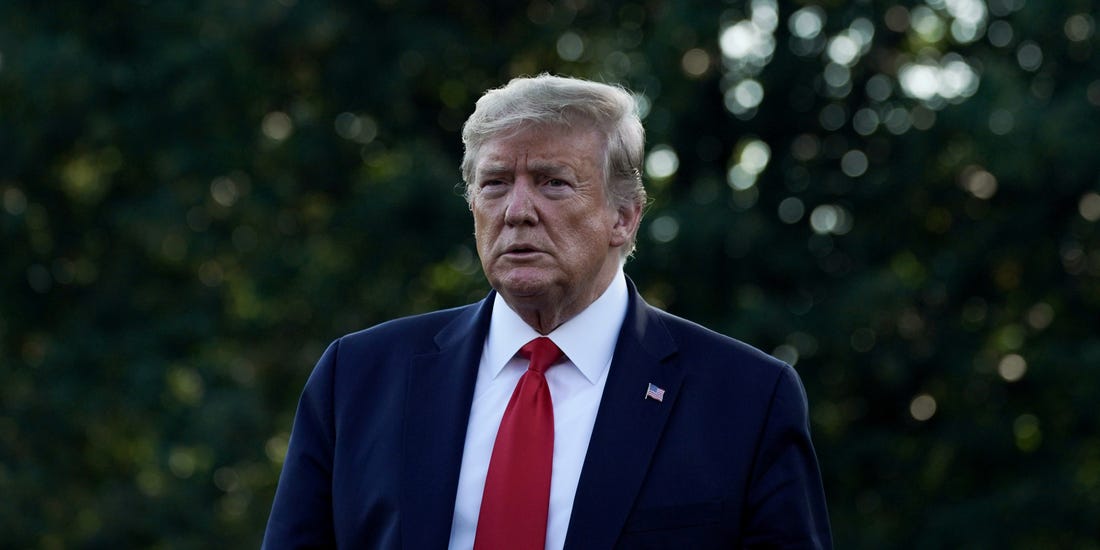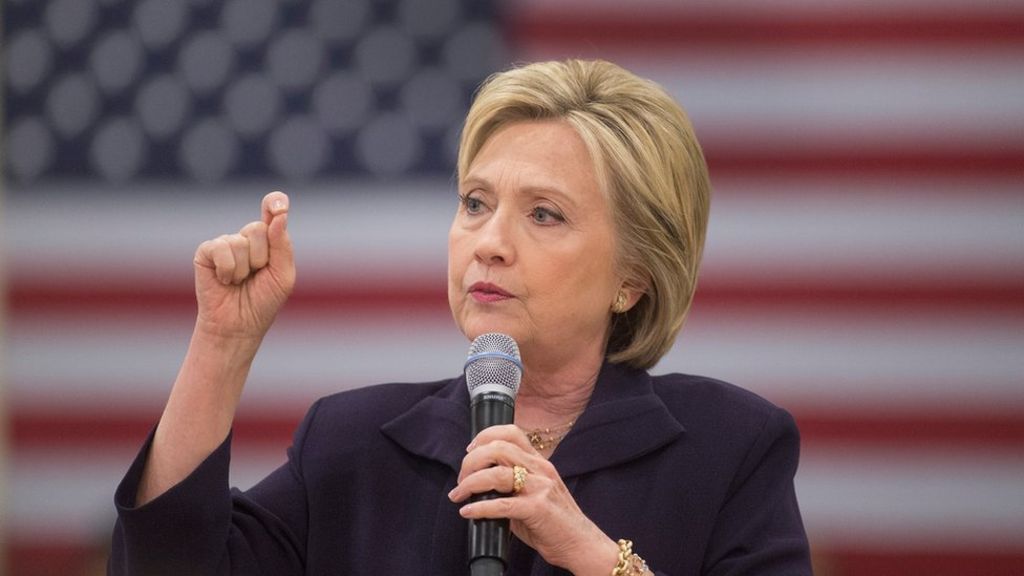A look at Trump’s tense relationship with the US intelligence community

A few minutes every morning is all you need.
Stay up to date on the world's Headlines and Human Stories. It's fun, it's factual, it's fluff-free.
On April 3, President Trump fired Michael Atkinson, the intelligence community inspector general who alerted Congress to the whistleblower complaint that triggered the president’s impeachment trial.
Trump justified the firing by saying that he had “lost confidence” in Atkinson, who became the latest official involved in the impeachment inquiry whom the president has removed from office.
But for others, including Democrats and national security experts, Atkinson’s removal is further evidence of the president’s campaign of retribution against the US intelligence community.
Trump’s response to DNC hack prior to his inauguration
Under the Trump administration, the relationship between the White House and the intelligence community has become “uniquely volatile.” But these tense relations began even before Trump entered the Oval Office.
Days before the 2016 Democratic National Convention (DNC), Wikileaks released a batch of emails that had been stolen from the DNC servers. Intelligence officials asserted that Russia was behind the hack, with their goal being to prevent Hilary Clinton from winning the election.

Trump, the Republican nominee for president at the time, a position that enabled him to be privy to classified intelligence briefings, rejected that conclusion.
When the issue came up during the first presidential debate, Trump said, “I don’t think anybody knows it was Russia that broke into the DNC… I mean, it could be Russia, but it could also be China. It could also be lots of other people. It also could be somebody sitting on their bed that weighs 400 pounds, OK?"
Even after Trump was elected president, he remained unwilling to accept the intelligence community’s findings.
In a January 2017 meeting in Trump Tower held two weeks before his inauguration, Trump met with top US security officials and “had great difficulty, as did his team, accepting the assertion that the Russians interfered," then-Director of National Intelligence James Clapper said.
Clapper described the president-elect’s tone at the meeting as cordial. But a few days later Trump tweeted a comment comparing US intelligence services to Nazis.
Relations worsen as president
Trump has frequently clashed with the intelligence community during his presidency.
He has fired several high profile officials, including FBI director James Comey and two Directors of National Intelligence (DNI) — Dan Coats in August 2019 and Joseph Maguire in February 2020.
The president has revoked security clearance of agency leaders and lambasted intelligence services over Twitter.
In January 2019, Trump tweeted, “The Intelligence people seem to be extremely passive and naive," and suggested, “Perhaps Intelligence should go back to school!” after news leaked that they disagreed with him on several foreign policy issues.
For much of his time in office, President Trump has been the subject of intelligence community investigations.
He called the Mueller inquiry into alleged Russian interference a “witch hunt” and impeachment hearings over his phone call with Ukrainian President Volodymyr Zelensky a “hoax.”
The president has further sought to undermine the intelligence community’s assessment that Russia meddled in the election by comparing it to the intelligence community’s reporting in 2002 that Saddam Hussein’s regime in Iraq had weapons of mass destruction. He also ordered Attorney General William Barr to investigate the legality of the actions various intelligence organizations took during investigations over Russia’s election interference.
Trump’s refusal to accept the findings of the intelligence community is not limited to the 2016 election.
One of Richard Grennell’s first acts after Trump named him acting DNI was to request a re-evaluation of information that suggested Russia is currently trying to interfere in the 2020 election.
But, according to former CIA Director Leon Panetta, “one of the most tragic moments in the history of the relationship between a United States president and the intelligence community” came when President Trump backed Russian president Vladimir Putin over his own intelligence services.
At a 2018 summit with Putin in Helsinki, Trump responded to a question about Russian interference during the 2016 election by saying, “My people came to me, [then Director of National Intelligence] Dan Coats came to me and some others, they said they think it’s Russia.
“I have President Putin, he just said it’s not Russia. I will say this. I don’t see any reason why it would be."

While the president has consistently fought back against the intelligence community regarding Russian interference, he has also challenged them in other areas.
In one prominent example, in the face of CIA intelligence that implicated Saudi Crown Prince Mohammad bin Salman in the murder of Washington Post journalist Jamal Khashoggi, President Trump reportedly dismissed the evidence.
According to The Institute for National Security Studies, a national security think-tank, Trump has also rejected assessments about North Korea’s nuclear program and the global threat posed by the Islamic State (ISIS).
[article_ad]
Have a tip or story? Get in touch with our reporters here!
Sign up for daily news briefs from The Millennial Source here!




Comments ()